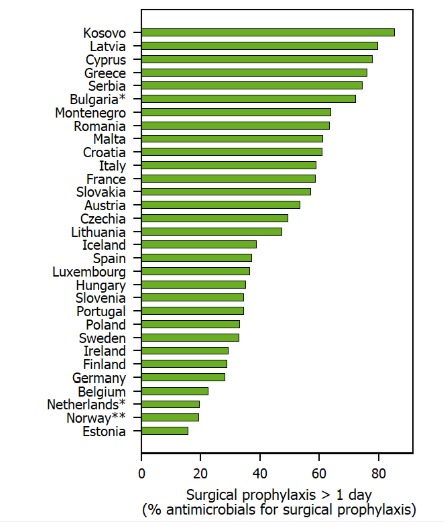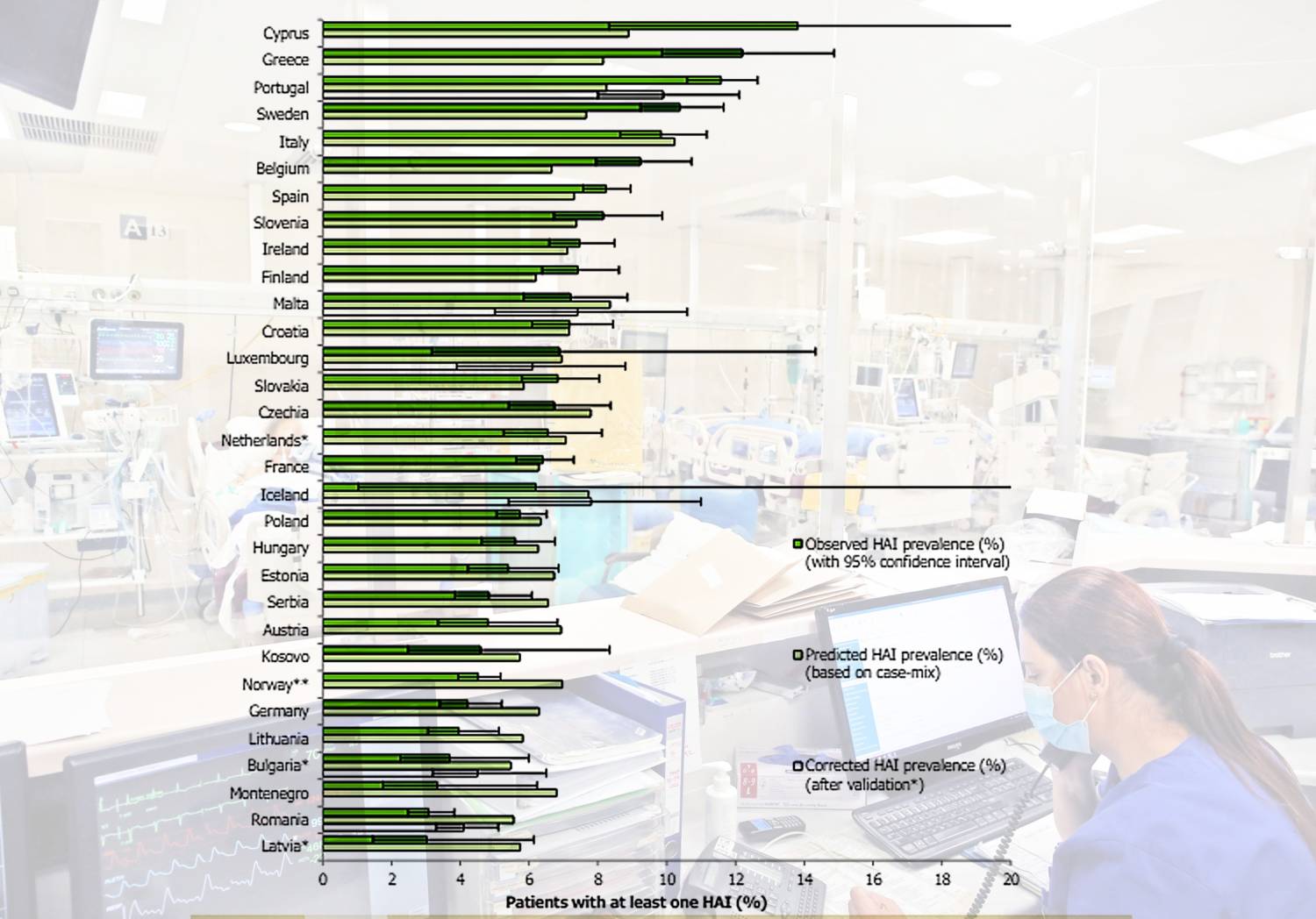Cyprus ranks first in the EU for hospital-acquired infections, indiscriminate antibiotic use, and antimicrobial resistance, according to the latest report by the European Center for Disease Prevention and Control (ECDC).
The European data reveals an alarming situation, with one in seven hospitalised patients developing a hospital-acquired infection during their stay.
The report attributes the prevalence of such infections to various factors, including hospital type, healthcare system, patient co-morbidities, protocols, and the level of training and skills of healthcare professionals.

This European study considered all relevant parameters to ensure accurate country-specific insights and employed a standardised accounting model with uniform adjustments for consistent conclusions.
In the European Union, it is estimated that 4.8 million hospitalised patients contract a hospital-acquired infection daily. The rates vary significantly among member states, with Latvia recording the lowest at 3% and Cyprus topping the list with a rate exceeding 13% (13.8%), well above the EU average of 7%.
Moreover, Cyprus seems to lack the proper organisation to tackle this issue effectively. While the country receives a favourable score regarding the ratio of infection surveillance nurses per hospital bed, it falls short in the availability of specialised physicians for hospital-acquired infections and rational antibiotic use.
In other words, while Cyprus performs above the EU average in specialised nursing staff, with a ratio of 2.48 nurses per 250 hospital beds, the situation regarding dedicated physicians is vastly different. There appears to be a shortage of doctors exclusively addressing infection-related matters in hospitals.
There is also a significant gap in physician education regarding the proper and judicious use of antimicrobials and the supervision of antibiotic administration within hospitals. The absence of appropriate monitoring of patient responses to administered antibiotic formulations and the lack of institutionalised processes for tapering off these medications are concerning.
Additionally, compliance among healthcare professionals with simple preventive measures, such as hand hygiene and the adequate use of antiseptic and disinfectant materials, seems problematic.
These findings align with Cyprus’s performance in the indiscriminate use of antimicrobials. Specifically, and as per the ECDC report, Cyprus, in addition to its high ranking in hospital-acquired infections, exhibits significantly high rates and ranks among the top in antimicrobial use within hospitals.
While the EU average for inpatient antimicrobial administration is 32.4%, with countries like Hungary recording rates as low as 20%,
Cyprus presents a staggering rate of 56%. Simplistically put, 56 out of every 100 hospitalised patients receive an antibiotic formulation daily. Moreover, the analysis reveals that a significant number of advanced and potent antibiotics are included in the administered formulations, contributing to the development of multi-resistant microbes.
Regarding antimicrobial resistance, Cyprus already ranks among the highest in the EU, creating a vicious cycle of antimicrobial resistance and advanced antibiotic usage. The country also records an alarmingly high percentage of the indiscriminate administration of antibiotics for surgical prophylaxis, with approximately 75% of patients continuing treatment for more than one day, a largely unjustified practice with detrimental consequences.

Dr. Konstantinos Tsioutis, an Assistant Professor specialising in infection prevention and control, told Phileleftheros that the report’s findings align with the unfortunate reality he has observed. “The impact on human lives, quality of life, disability, and economic costs is immense,” he said, adding, “Our country has unfortunately maintained high rankings in antibiotic consumption, multi-resistant microbes, and hospital-acquired infections in Europe for years. There is an urgent need for a well-organised intervention by the Ministry of Health and relevant authorities to reverse this tragic situation, which is costing lives.”
The analysis of the data also reveals an exceedingly high percentage of the use of urinary catheters and intubated patients in Cyprus, with rates far above the EU average.






